In today’s fast-evolving scientific landscape, the precision and reliability of laboratory equipment are critical to ensuring accurate, reproducible, and trustworthy results. Laboratories throughout Saudi Arabia—from Riyadh and Jeddah to Dammam and other key regions—have come to rely on one name synonymous with excellence in labware supply: OxyTech. As the premier high-quality labware suppliers in Saudi Arabia, OxyTech delivers a comprehensive range of laboratory glassware, plasticware, consumables, and custom solutions adhering to the highest global standards.
OxyTech’s reputation is grounded in three foundational pillars: uncompromising quality, consistent performance, and a customer-centric approach. Understanding that even the smallest labware component can impact experimental outcomes, OxyTech ensures every product not only meets but surpasses international benchmarks for material integrity and safety. This meticulous attention to detail has made OxyTech the trusted partner for leading hospitals, research centers, academic institutions, and industrial laboratories across the Kingdom.
OxyTech prides itself on manufacturing labware using premium materials such as borosilicate glass, polypropylene (PP), and high-density polyethylene (HDPE), all known for their chemical resistance and durability. Each product undergoes rigorous quality testing and complies with globally recognized standards including ISO 9001, ASTM, DIN, and CE certifications. This strict adherence to quality and safety assurance guarantees that OxyTech’s labware delivers reliable performance in even the most demanding lab environments.
As a full-service labware supplier, OxyTech offers a broad portfolio to meet virtually every laboratory requirement:
Laboratory glassware including beakers, flasks, measuring cylinders, and test tubes.
Precision instruments such as pipettes, burettes, and dispensers.
Consumables like petri dishes, sample containers, and various filterware.
Lab plasticware along with specialized containers adapted for industrial and research needs.
Custom-designed labware tailored to unique client specifications and applications.
This extensive product offering supports diverse industries such as healthcare, pharmaceuticals, environmental testing, petrochemicals, food and beverage, and academic research, making OxyTech a comprehensive solutions provider in Saudi Arabia.
Unlike many international brands that serve Saudi Arabia from afar, OxyTech pairs world-class high-quality labware suppliers in Saudi Arabia with local accessibility. With a fully operational distribution network spanning the Kingdom, OxyTech ensures timely deliveries, competitive pricing, and responsive customer service. This local presence also enables OxyTech to offer customized services that address the specific regulatory and operational nuances of the Saudi market, delivering unparalleled value to clients.
OxyTech’s capabilities extend beyond being a supplier; it is also recognized as one of the top labware manufacturers in Saudi Arabia. Their state-of-the-art manufacturing facility, staffed by expert technicians and equipped with advanced technology, controls every phase of production—from raw material sourcing and stringent quality assurance to innovative packaging. This vertically integrated model assures customers of exceptional product consistency and reliability.
By manufacturing locally, OxyTech not only guarantees faster lead times but also supports Saudi Arabia’s Vision 2030 goals by fostering industrial growth, reducing import dependence, and promoting sustainable development within the scientific sector. Their ability to quickly adapt manufacturing schedules and produce customized labware solutions further distinguishes OxyTech in the competitive labware landscape.
OxyTech’s labware plays a critical role across multiple sectors:
Healthcare & Diagnostics: Sterile, precise labware supports hospital diagnostics, clinical testing, and sample management.
Pharmaceuticals: Accurate measuring instruments and containers assist in research & development as well as production processes.
Petrochemicals & Oil & Gas: Durable labware withstands challenging chemical and temperature conditions for petroleum product analysis.
Food & Beverage: Quality assurance and contamination control rely on robust labware for testing and compliance.
Academic & Research Institutes: Universities and research labs utilize OxyTech products to ensure consistent results and innovation.
Environmental Testing: Specialized containers and measuring tools aid air, water, and soil quality assessment laboratories.
Choosing OxyTech equips laboratories with:
Premium-certification backed labware for dependable, reproducible results.
Wide-ranging portfolios supporting varied scientific and industrial applications.
Localized, quick distribution with competitive pricing and tailored solutions.
Commitment to sustainability and adherence to global and Saudi regulatory standards.
Expert customer service providing technical guidance and after-sales support.
OxyTech is the definitive choice for high-quality labware supply and manufacturing across Saudi Arabia. By combining rigorous quality assurance, comprehensive product offerings, local expertise, and advanced manufacturing capabilities, OxyTech continues to set the bar for scientific precision and operational excellence. For laboratories and industries demanding the best in labware, OxyTech remains the trusted partner in advancing the Kingdom’s scientific and industrial ambitions.
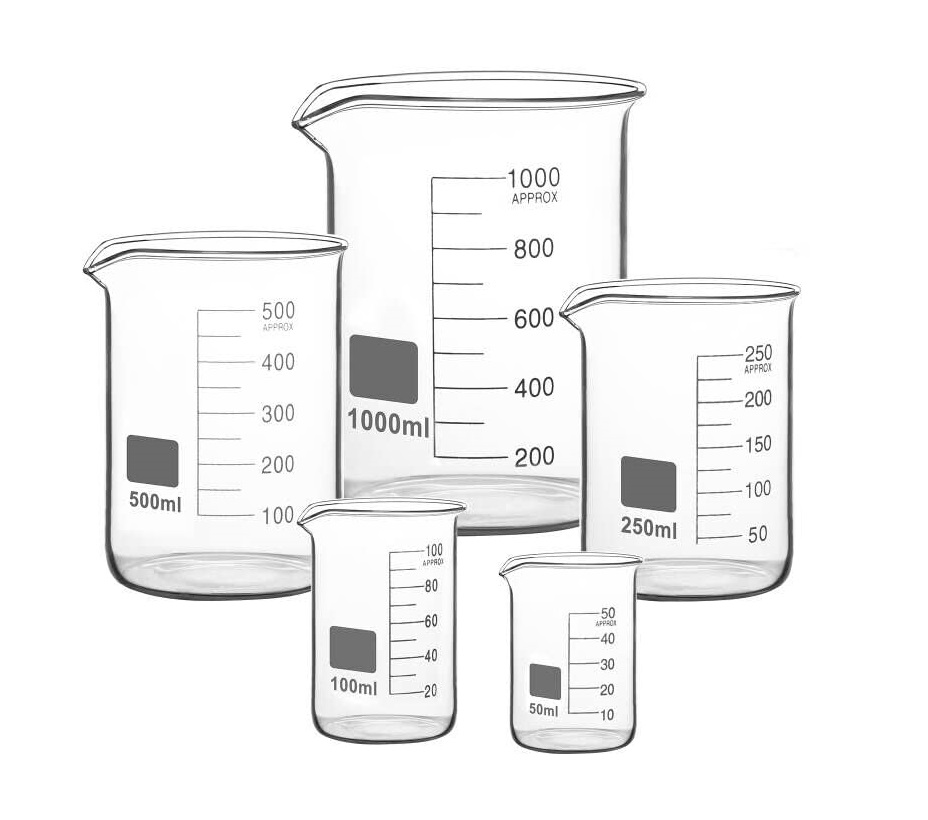
Beakers, available in glass and plastic, are ideal for mixing, heating, and approximate volume measurement. Sizes range from 10 mL to 5,000 mL and feature graduated markings. Borosilicate glass beakers resist thermal shock and are autoclavable. Polypropylene and PMP plastic beakers offer chemical resistance and are ideal for low-temperature applications.
Types : Griffin (low-form), Berzelius (tall-form), and crystallizing dishes.
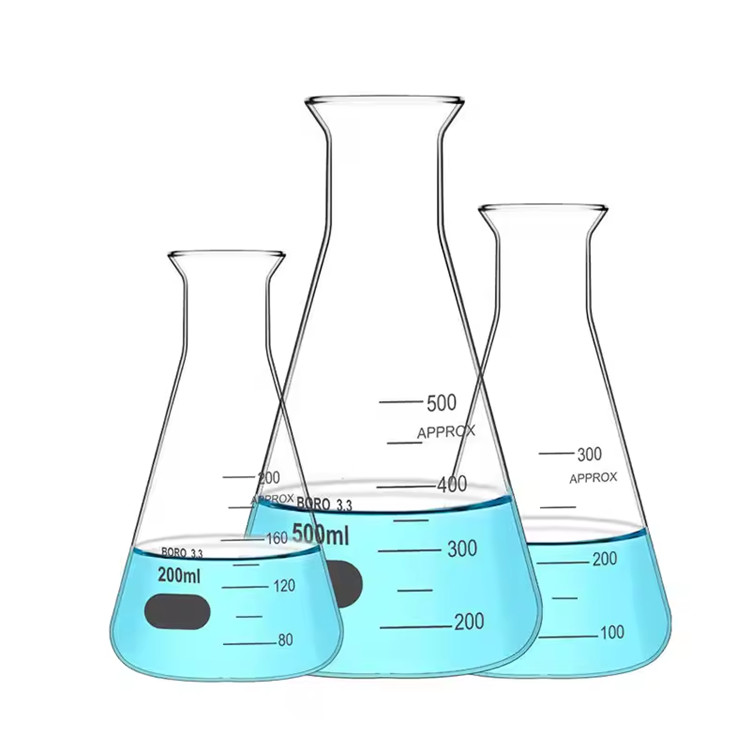
Flasks are essential for heating, titration, and culturing. Glass flasks (borosilicate) handle thermal stress and are autoclavable, while plastic versions (PETG, PC) are lighter and break-resistant. Capacities range from 50 mL to 2,000 mL. Narrow necks reduce evaporation and splashing during mixing or swirling.
Types : Round bottom flasks, Conical flasks, Erlenmeyer flasks, volumetric flasks, boiling flasks (round-bottom, flat-bottom), filtering flasks, and cell culture flasks.
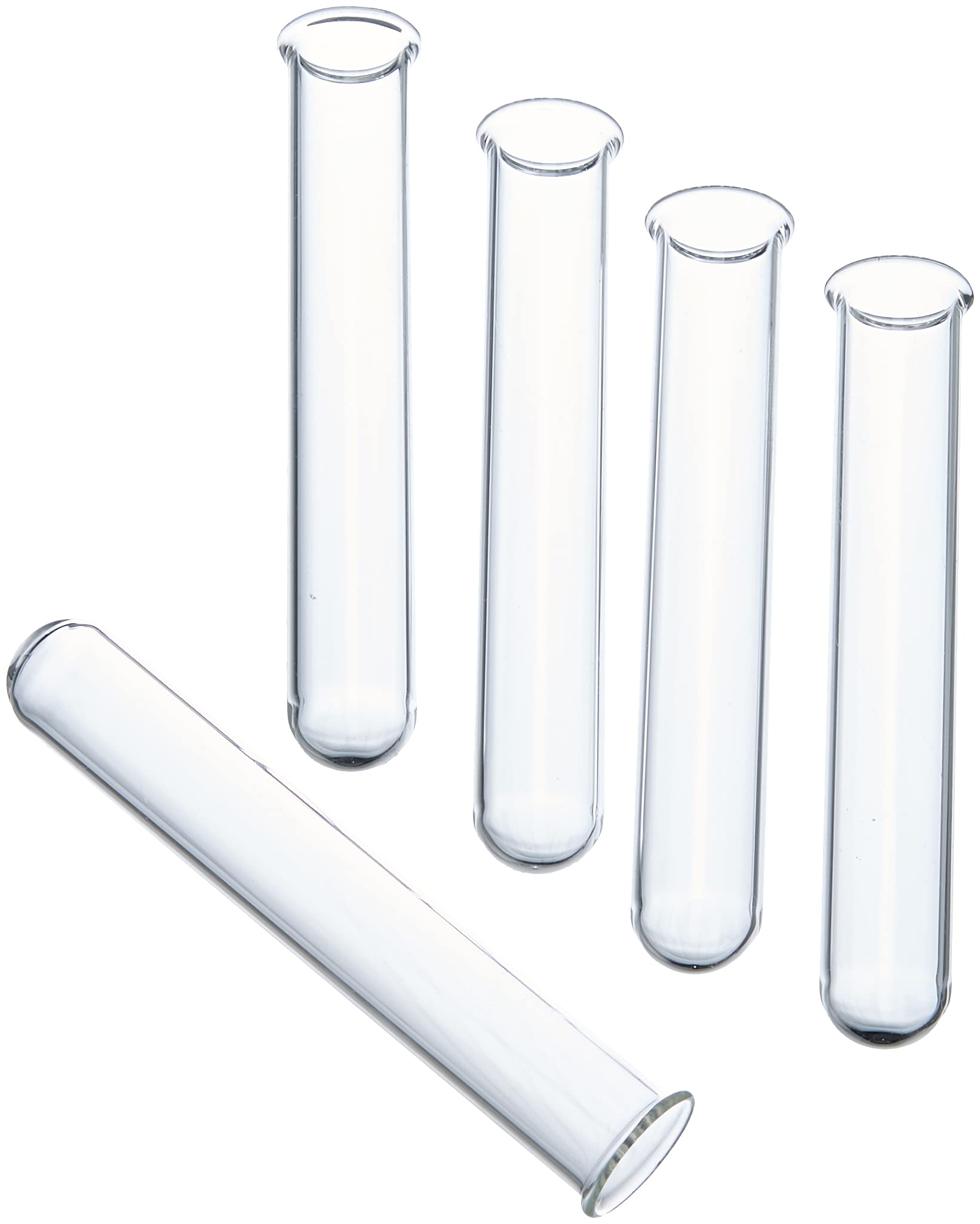
Test tubes are cylindrical vessels for sample handling, chemical reactions, and heating. Available in glass or polypropylene, typical dimensions range from 10 × 75 mm to 25 × 150 mm. Glass tubes can withstand flame and autoclaving, while plastic options are ideal for disposable use.
Types : Rimless, rimmed, conical-bottom, round-bottom, screw-cap, Conical Microtube, and culture tubes.
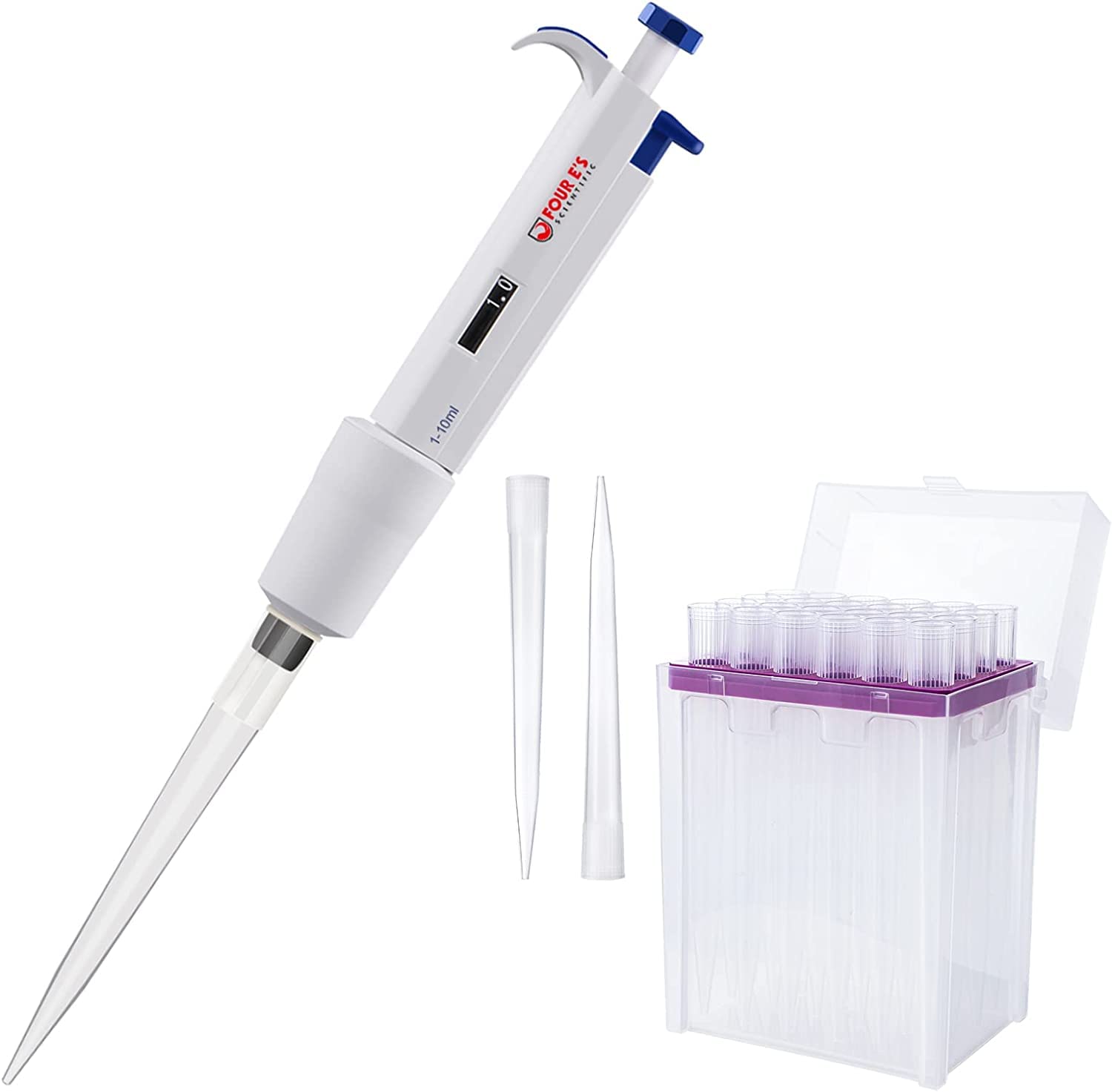
Pipettes deliver precise liquid volumes in molecular biology, analytical chemistry, and diagnostics. Micropipettes range from 0.1 µL to 10 mL, while serological pipettes span 1 mL to 50 mL. Tips are sterile, DNase/RNase-free, and compatible with universal pipettors.
Types : Glass pipettes, Serological pipettes, Pipettes tips, Single-channel, multi-channel, fixed-volume, variable-volume, transfer pipettes, and electronic pipettes.
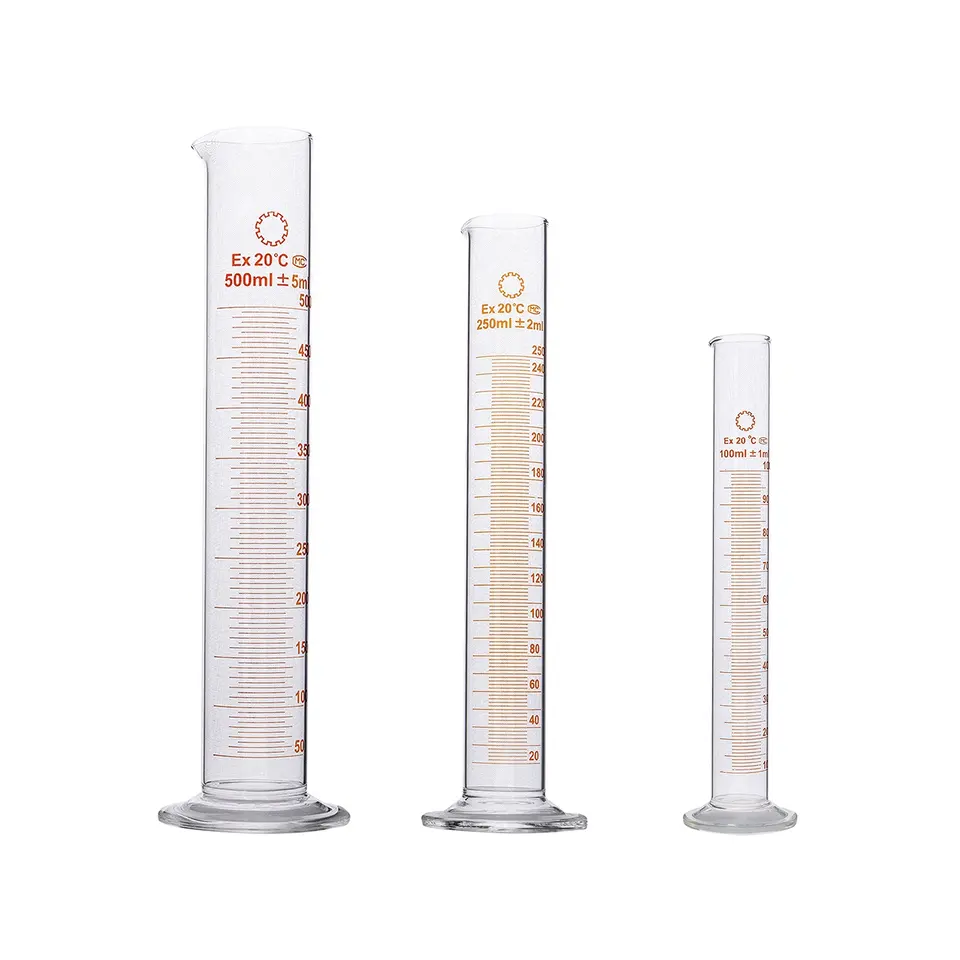
Measuring cylinders offer accurate liquid measurement with graduations in mL. Made of borosilicate glass or polypropylene, capacities range from 10 mL to 2,000 mL. Class A cylinders come with calibration certificates for precise analysis.
Types : Tall-form, squat-form, hexagonal-base, round-base, and graduated cylinders with stopper.
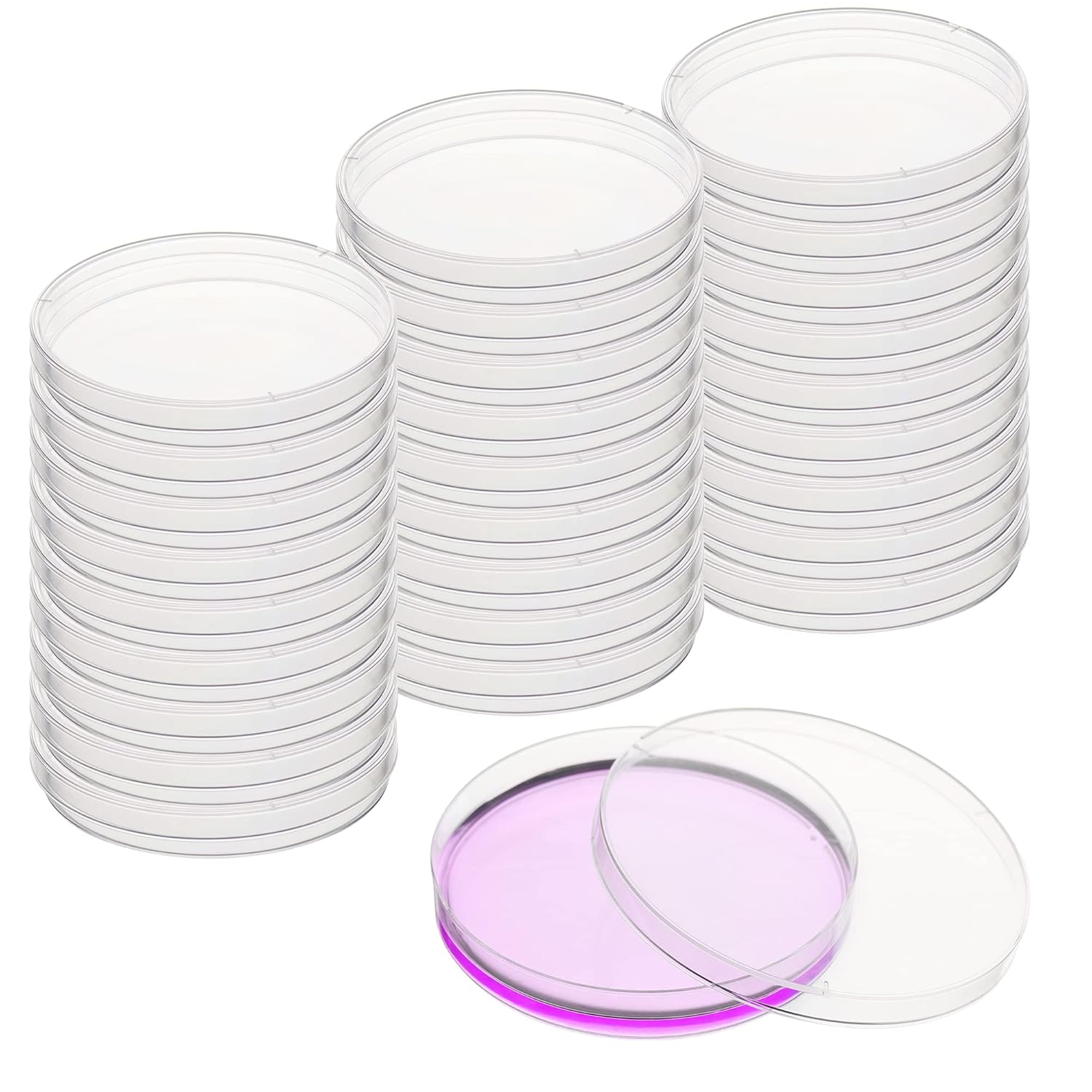
Petri dishes support microbial culture in labs. Made of polystyrene (disposable) or borosilicate glass (reusable), they are sterile and stackable. Sizes commonly include 60 mm, 90 mm, and 150 mm diameters. Vented lids improve aeration during incubation.
Types : Vented, non-vented, divided (compartmentalized), and square petri dishes.
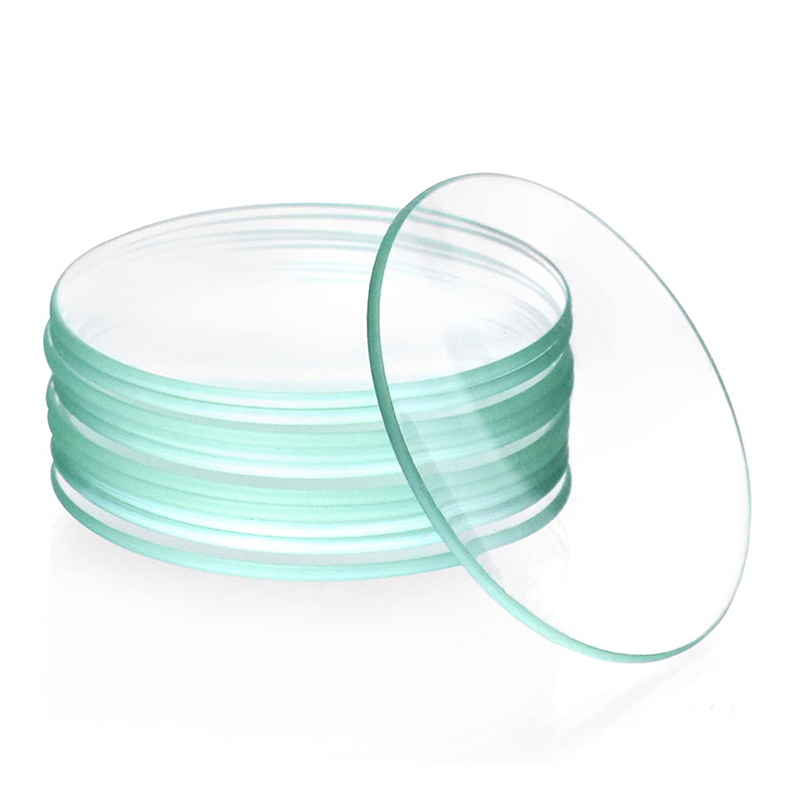
Watch glasses are circular, concave glasses used for evaporating solvents, weighing solids, or covering beakers. Made of borosilicate glass, diameters typically range from 50 mm to 150 mm. Heat- and chemical-resistant for versatile lab use.
Types : Plain, ribbed, and heavy-duty watch glasses.
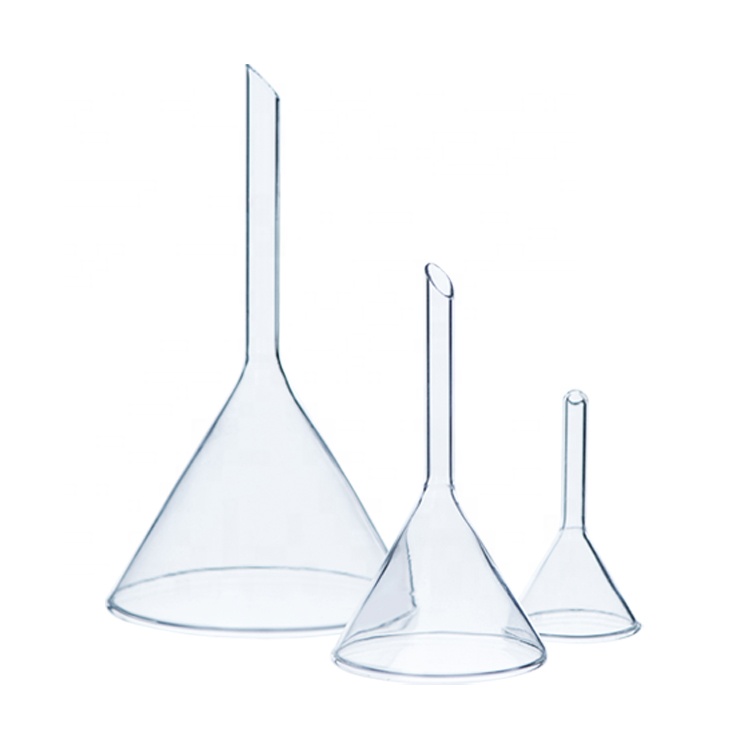
Funnels simplify liquid transfer and filtration. Made of glass or polypropylene, they range from 25 mm to 150 mm in diameter. Long-stem and short-stem options allow flexibility in lab setups.
Types : Conical funnels, Büchner funnels, separating funnels, powder funnels, and thistle funnels.
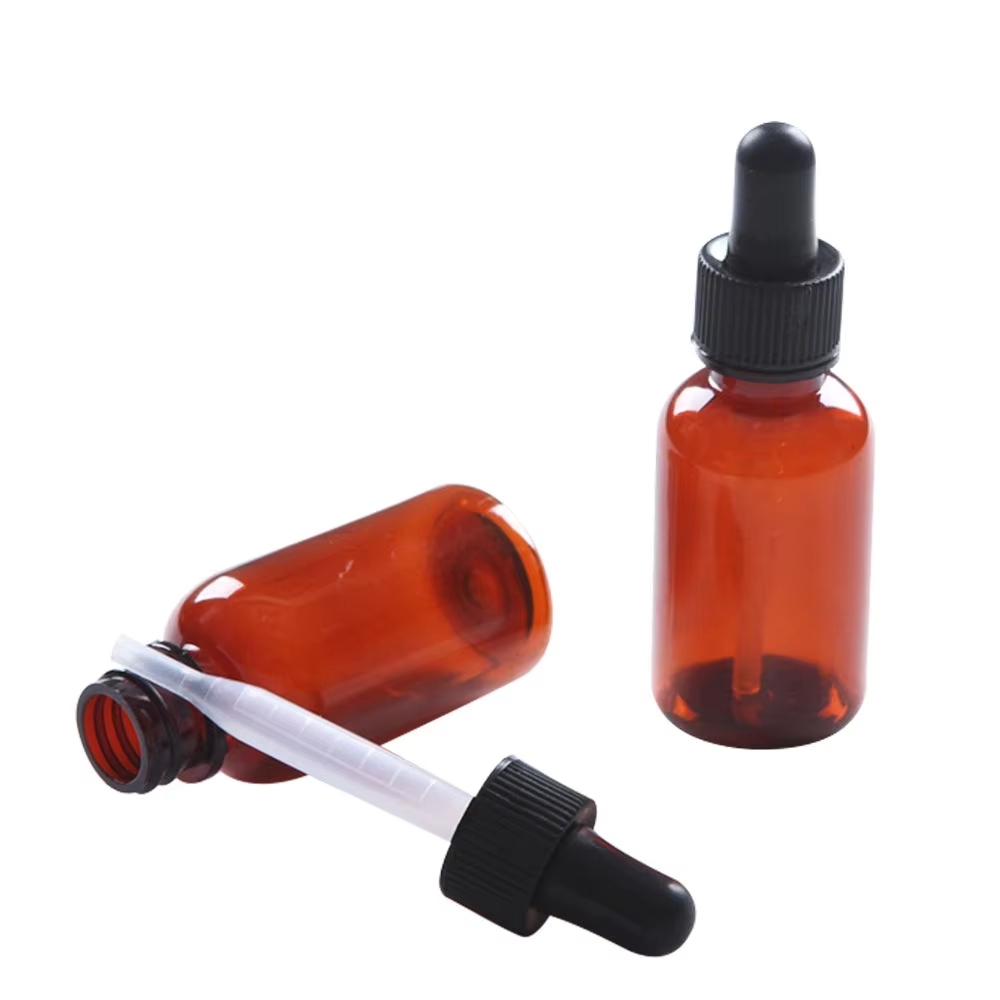
Dropper bottles dispense reagents in small, controlled amounts. Made from glass or LDPE plastic, capacities range from 5 mL to 100 mL. Ideal for analytical reagents and indicator solutions.
Types : Screw-cap dropper bottles, rubber bulb droppers, plastic squeeze bottles, and amber dropper bottles.
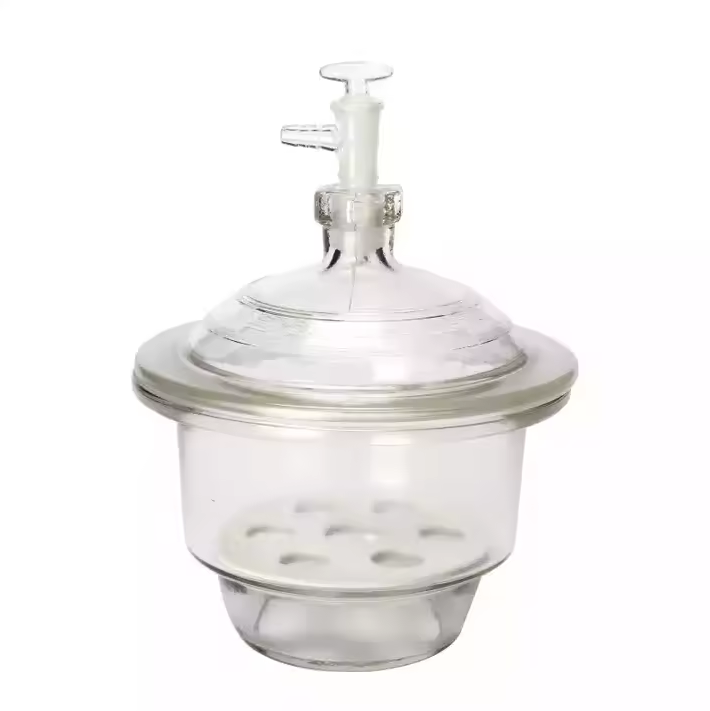
Desiccators maintain low humidity for storing hygroscopic or moisture-sensitive samples. Typically made from borosilicate glass or polycarbonate, they include lids, silicone gaskets, and desiccant trays. Available in standard (150 mm) to large (300 mm) sizes.
Types : Vacuum desiccators, non-vacuum desiccators, clear polycarbonate, and autoclavable desiccators.
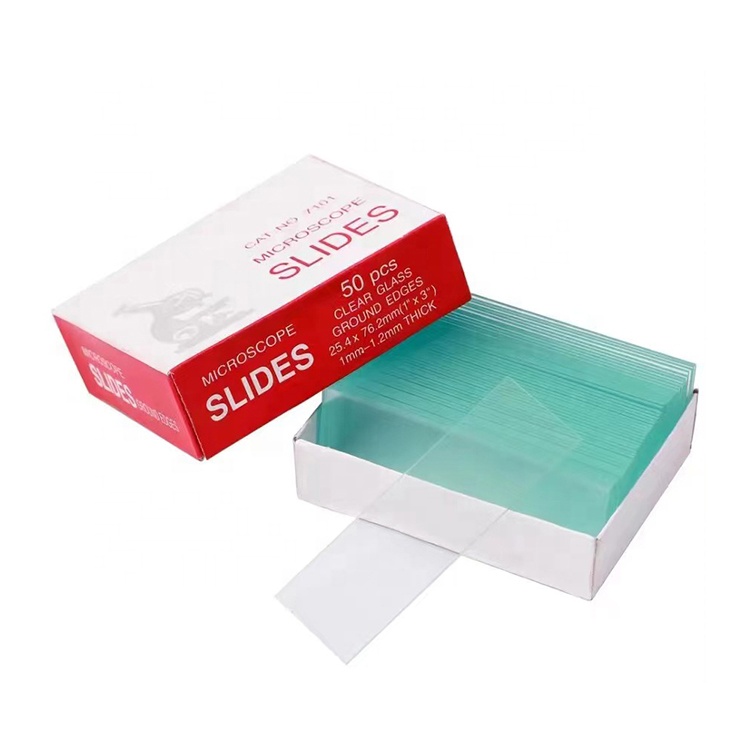
Microscope slides are thin, flat pieces of glass or plastic used to hold samples for examination under a microscope. Standard slides measure 25 × 75 mm and are typically 1.0–1.2 mm thick. Made from soda-lime or borosilicate glass, they feature ground or beveled edges for safety. Available in plain, frosted, or pre-cleaned versions, they offer optimal transparency and minimal autofluorescence.
Types : Plain slides, frosted-end slides, charged slides (positive/negatively charged), concavity slides, and adhesive-coated slides.
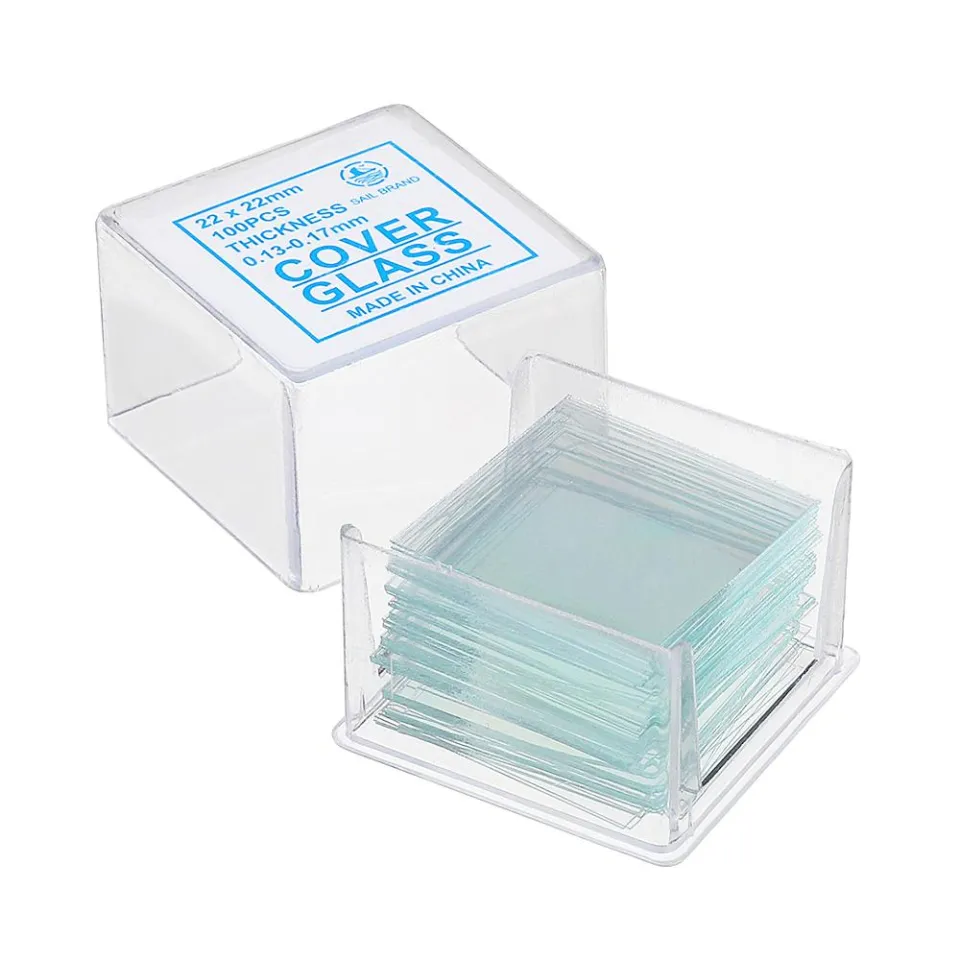
Coverslips are ultra-thin glass pieces placed over specimens on microscope slides to protect samples and improve optical clarity. Typically made of borosilicate or soda-lime glass, coverslips come in square or rectangular shapes, with standard sizes like 22 × 22 mm or 24 × 50 mm and thickness ranging from No. 1 (0.13–0.17 mm) to No. 1.5 (0.16–0.19 mm). They reduce refraction and help preserve the specimen for extended observation.
Types : Square, rectangular, round, high-precision No. 1.5H coverslips, and plastic coverslips.
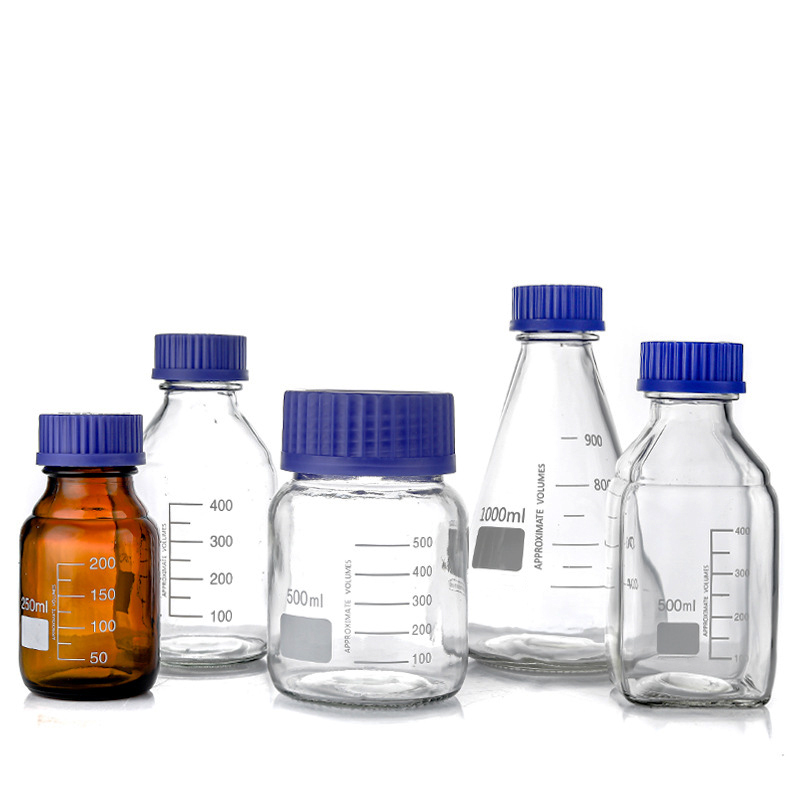
Reagent bottles are used for storing, transporting, and dispensing chemical solutions. Made from borosilicate glass or chemically resistant plastics like HDPE or PP, they come in sizes ranging from 30 mL to 5,000 mL. Glass bottles are autoclavable and suitable for aggressive chemicals, while plastic bottles are lightweight and shatter-resistant. Features include wide or narrow necks, screw caps, or pour rings for ease of use.
Types : Amber or clear glass bottles, narrow-mouth, wide-mouth, graduated, and safety-coated bottles.
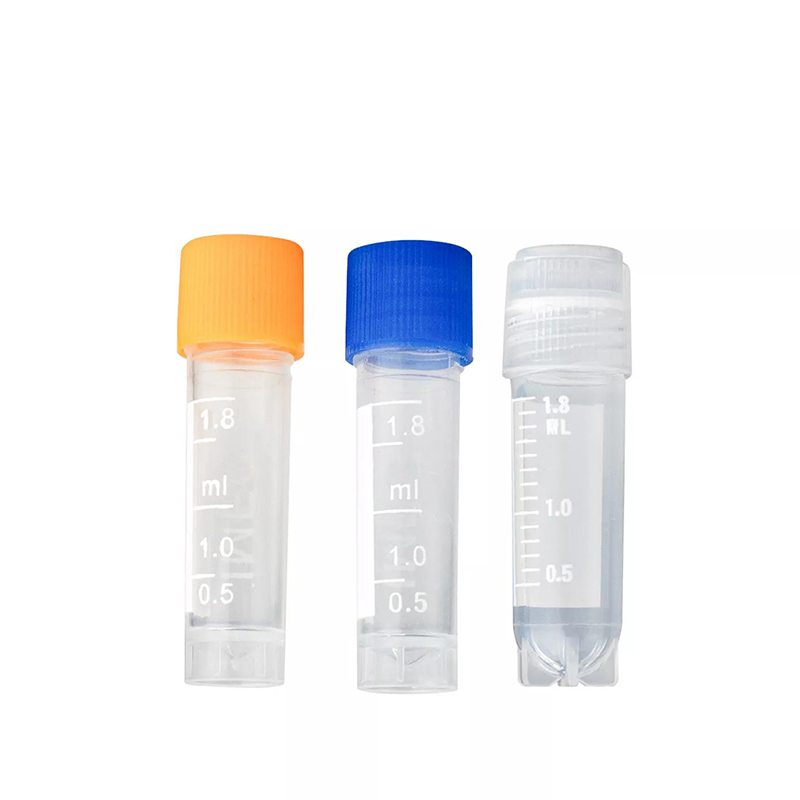
Cryogenic vials are specialized containers for storing biological samples at ultra-low temperatures (down to –196°C in liquid nitrogen). Constructed from medical-grade polypropylene, these vials are autoclavable, leak-proof, and DNase/RNase-free. They typically range from 0.5 mL to 5.0 mL in volume and include features like internal or external threads, O-ring seals, and star-foot bases for stability in cryo-boxes.
Types : Internal-thread vials, external-thread vials, skirted vials, non-skirted vials, sterile and pre-labeled cryovials.
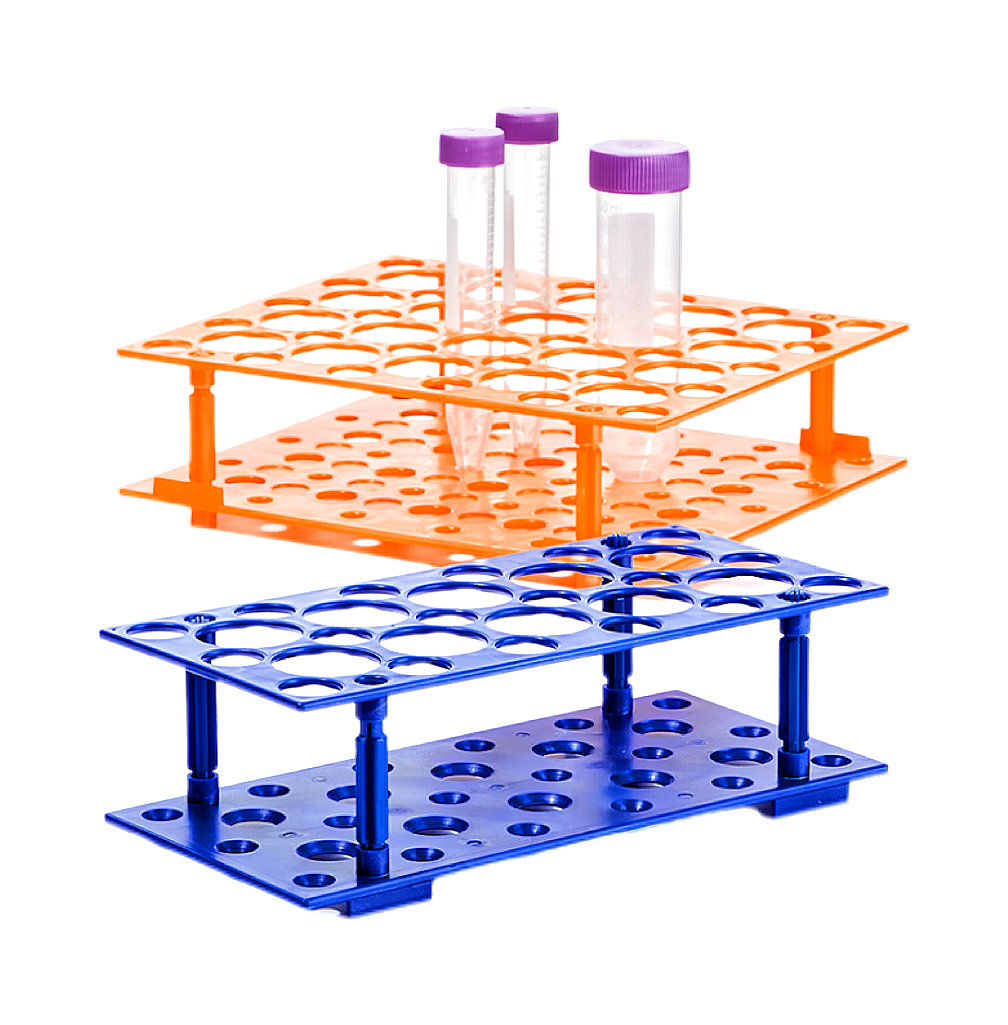
Test tube racks are essential for holding, organizing, and storing test tubes in laboratories. Made from durable materials such as stainless steel, polypropylene (PP), or polycarbonate (PC), they offer excellent chemical and heat resistance. Commonly available in configurations to hold 6, 12, 24, or 48 tubes of standard sizes (13 mm to 25 mm diameter). Steel racks are autoclavable and suitable for high-temperature environments, while plastic racks are lightweight and corrosion-resistant.
Types : Stackable racks, interlocking racks, slanted drying racks, floating racks, and rotating tube racks.
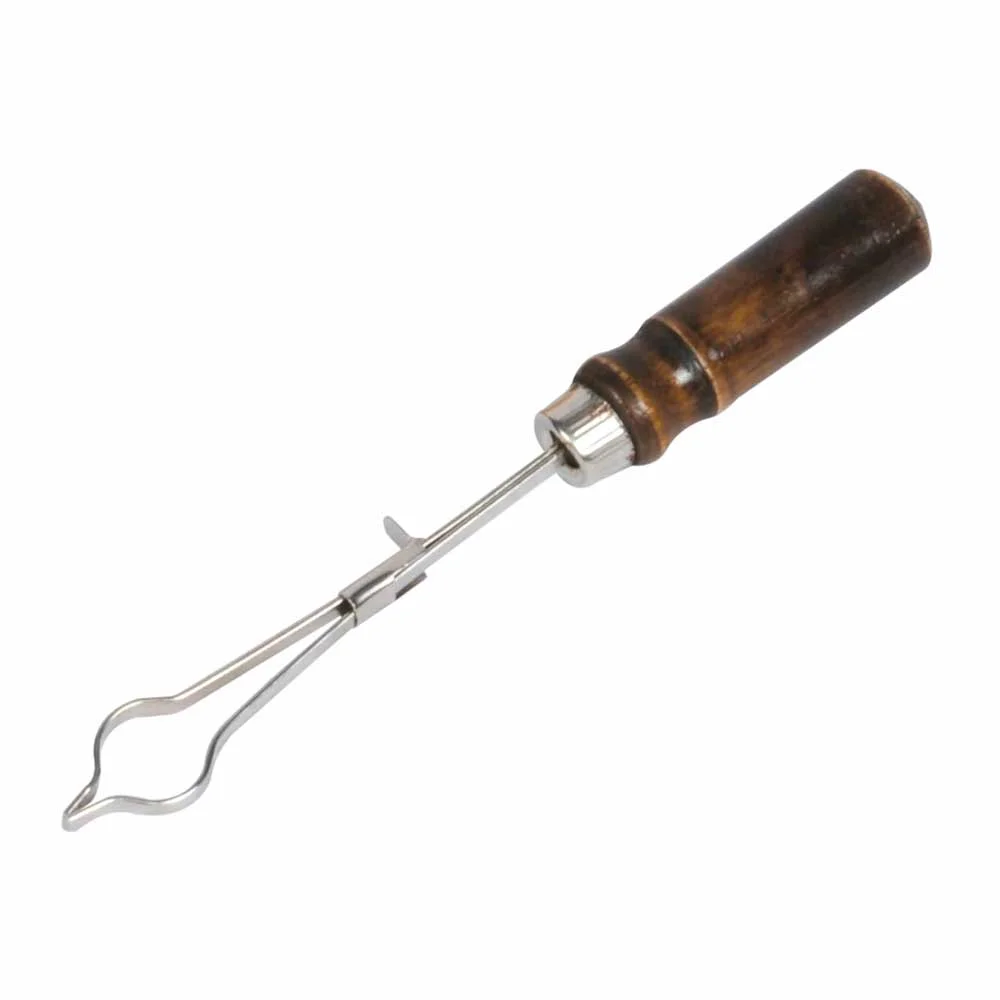
Test tube holders are handheld clamps designed to securely grip test tubes during heating, mixing, or transport. Typically made of stainless steel, spring steel, or plastic with a coated grip for insulation. They are suitable for test tubes ranging from 10 mm to 30 mm in diameter. Their ergonomic design ensures user safety when handling hot or reactive substances over flames or during chemical reactions.
Types : Metal spring holders, wooden holders, plastic-coated holders, and clamp-style test tube tongs.
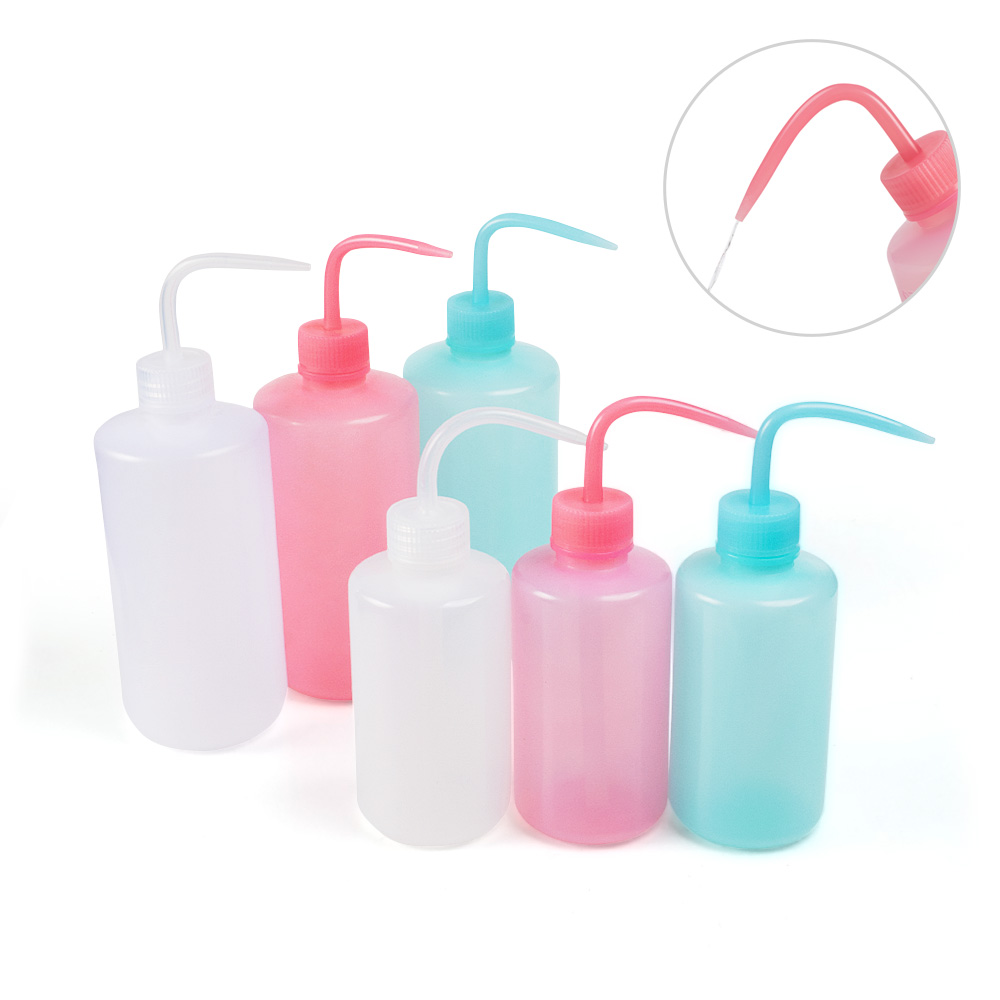
Wash bottles are squeezable plastic containers used for rinsing lab glassware and dispensing distilled water or solvents. Made from LDPE, HDPE, or FEP for chemical resistance, they are available in sizes from 125 mL to 1,000 mL. The angled nozzle design ensures controlled flow without contamination. Bottles may be color-coded or labeled for specific reagents such as ethanol, acetone, or deionized water.
Types : LDPE wash bottles, wide-mouth, narrow-mouth, vented, safety-labeled, and solvent-specific wash bottles.
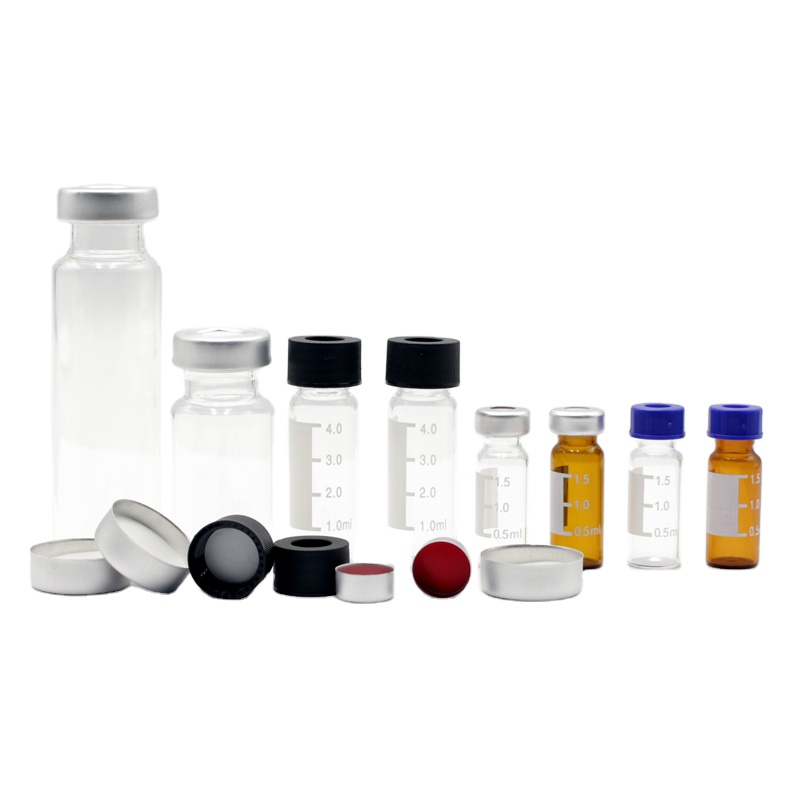
Small vial bottles are used for storing and transporting samples, reagents, and biological materials. Manufactured from borosilicate glass or medical-grade plastics (PP, HDPE), they range in volume from 0.5 mL to 30 mL. Screw-cap or crimp-top closures ensure leak-proof storage. Some variants feature conical bottoms for complete sample retrieval. Glass vials offer thermal and chemical resistance, while plastic vials are ideal for disposable workflows.
Types : Screw-cap vials, crimp-top vials, autosampler vials, amber vials, clear vials, and snap-cap vials.
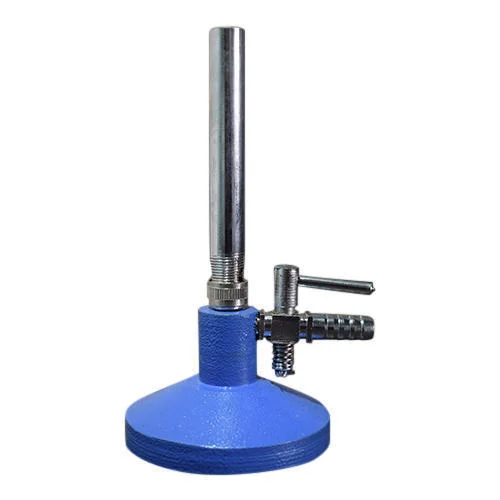
The Bunsen burner is a staple heat source in laboratories, used for sterilization, combustion, and heating. It operates on natural gas, propane, or butane and provides a controllable flame with adjustable air intake. The burner typically includes a metal base, chimney, and gas inlet. Flame temperatures can reach up to 1,500°C depending on the gas-air mixture. Safety features such as flame arrestors are included in modern designs.
Types : Standard Bunsen burners, Tirrill burners, Meker burners, and safety flame burners.
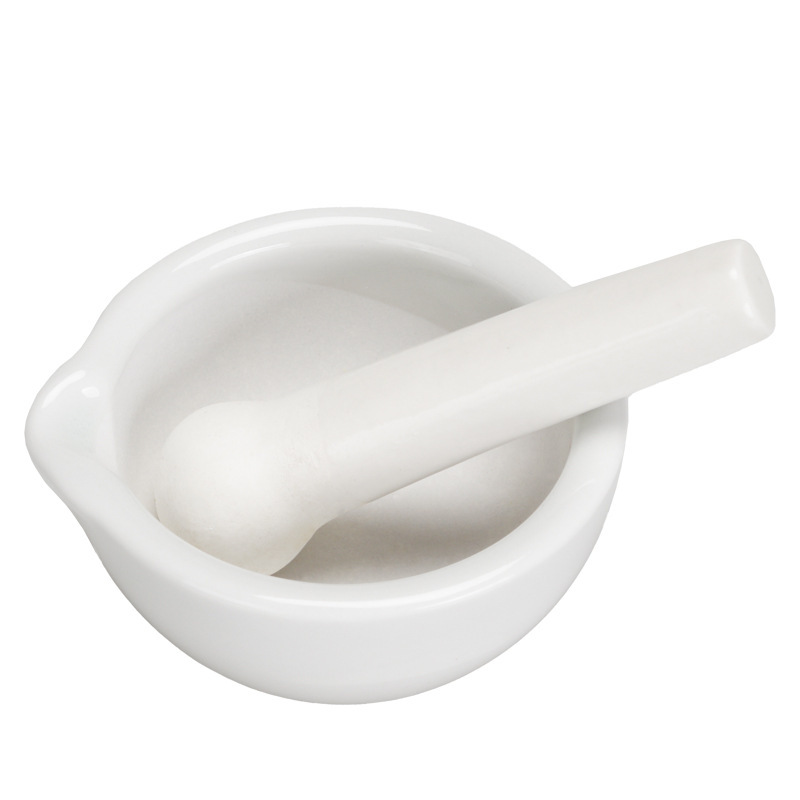
Mortar and pestle sets are used to grind, crush, and homogenize solid samples. Made from porcelain, agate, glass, or stainless steel, they provide a non-reactive surface for sample preparation. Mortars range in diameter from 50 mm to 200 mm, and pestles are matched for efficient grinding. Porcelain is ideal for general use; agate is preferred for high-purity or trace analysis due to its non-contaminating properties.
Types : Porcelain, agate, glass, ceramic, and metal mortar and pestle sets.
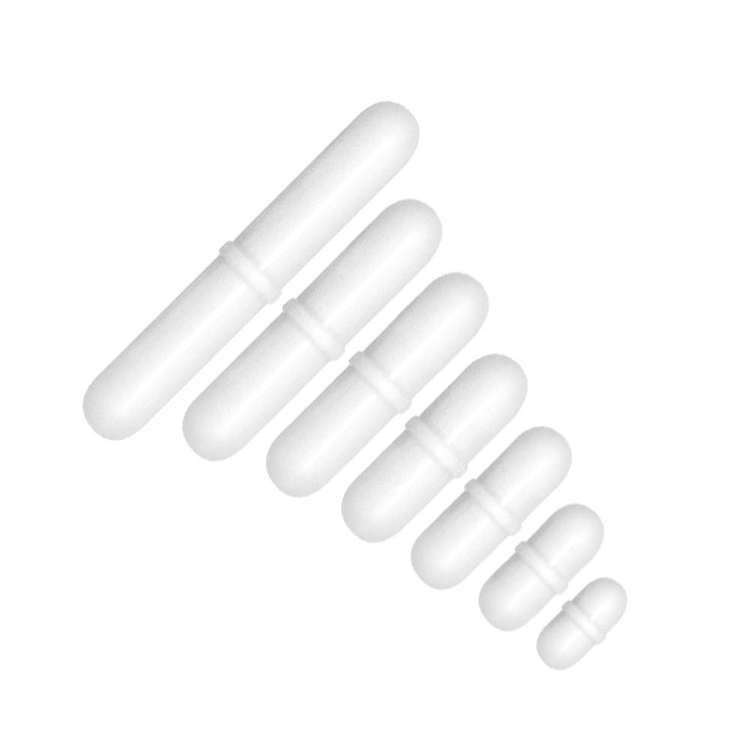
Magnetic stirrer bars are coated magnets used with magnetic stirrers for mixing solutions in beakers or flasks. Typically PTFE-coated for chemical resistance and non-stick properties, they come in lengths from 10 mm to 80 mm. Shapes include cylindrical, octagonal, and pivot ring designs for improved stability and vortex formation. They operate silently and are ideal for temperature-sensitive or closed system mixing.
Types : Octagonal stir bars, cross-shaped, capsule-shaped, pivot ring stir bars, and retriever-compatible stir bars.
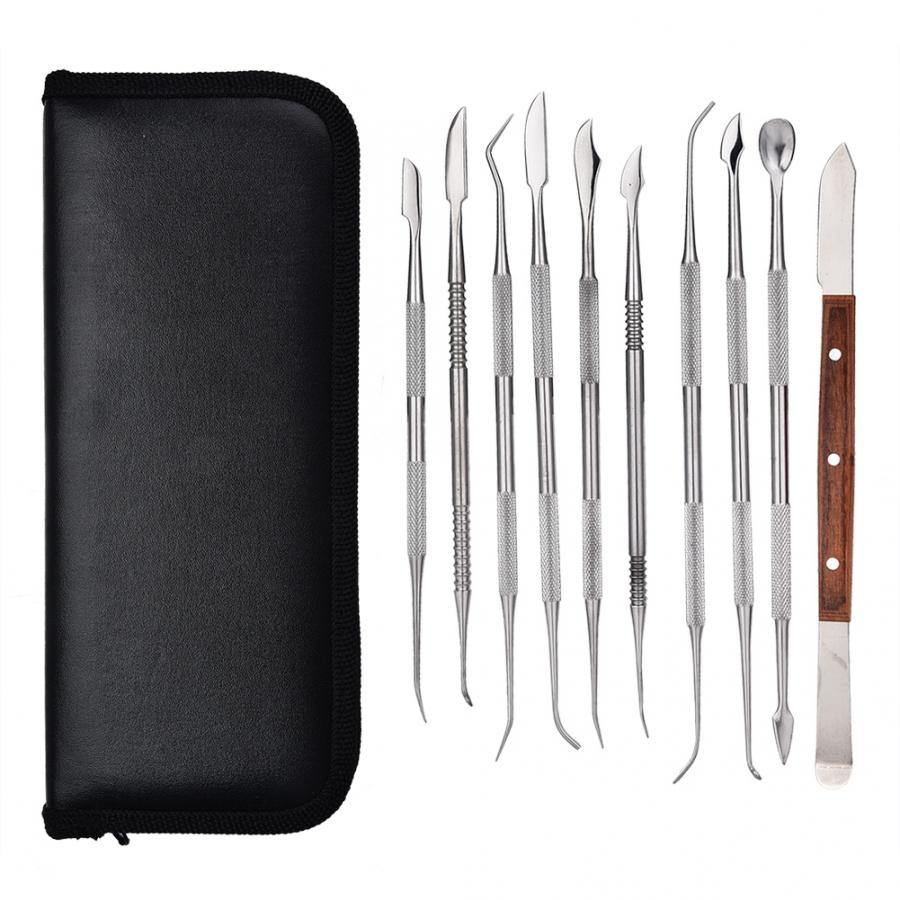
Laboratory spatulas are small hand tools used for transferring, scraping, or mixing chemical solids and powders. Made from stainless steel, plastic, or PTFE, they resist corrosion and are easy to sterilize. Available in various shapes such as flat, scoop, micro, and double-ended designs, spatulas range in length from 100 mm to 250 mm. Precision tips allow sampling in narrow containers and reduce material loss.
Types : Flat spatulas, spoon spatulas, micro spatulas, double-ended spatulas, and anti-static plastic spatulas.